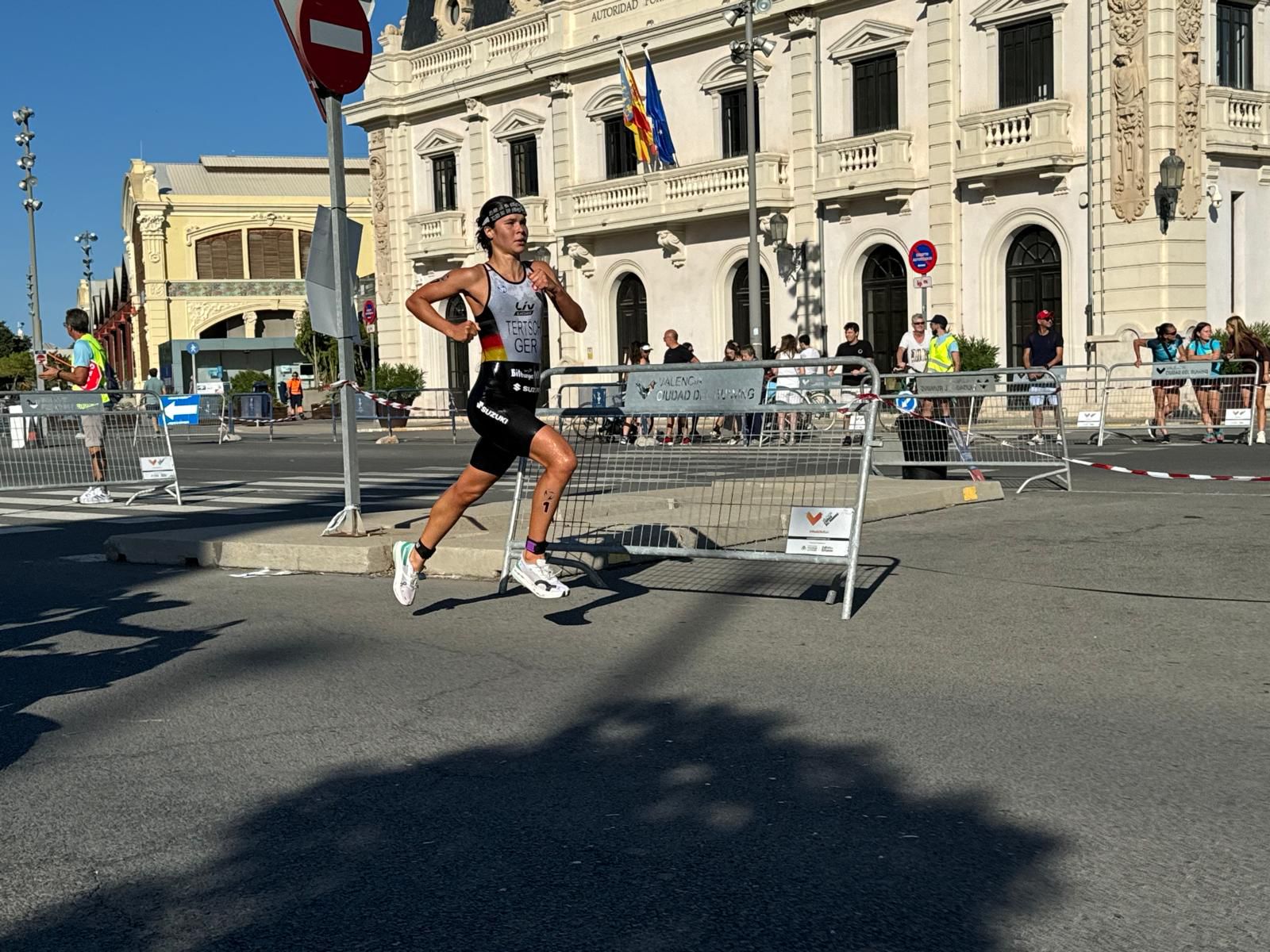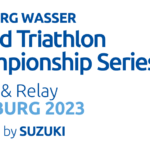I have been working with athletes for decades helping them to strengthen their minds the same way they strengthen their bodies. Athletes don’t wait to get injured before increasing their physical fitness; instead,![]() they get stronger to prevent injury. That’s why I call it “mental training,” the mind needs to be exercised to withstand the intense demands of both training and competition.
they get stronger to prevent injury. That’s why I call it “mental training,” the mind needs to be exercised to withstand the intense demands of both training and competition.
Much of my mental training work focuses on helping athletes to change the way they think about  competition. I believe that how athletes think has a huge impact on how they perform. At the same time, I strongly believe that emotions are the first and last pieces to the sports-performance puzzle. Emotions are the fuel that propel us to action in life (e.g., frustration fuels you to try harder, inspiration to pursue your dreams) and that holds true in sports too.
competition. I believe that how athletes think has a huge impact on how they perform. At the same time, I strongly believe that emotions are the first and last pieces to the sports-performance puzzle. Emotions are the fuel that propel us to action in life (e.g., frustration fuels you to try harder, inspiration to pursue your dreams) and that holds true in sports too.
Despite this belief, I have never, in all these years, actually thought about training emotions. Instead, I’ve assumed that emotions would just change when I helped athletes to change their thinking (which is true to a large extent). That is, until I began working with Lisa Tertsch, the newly crowned Paris Olympic gold medalist in triathlon.
a large extent). That is, until I began working with Lisa Tertsch, the newly crowned Paris Olympic gold medalist in triathlon.
Of all the different psychological contributors to athletic performance, emotions are certainly the most mysterious and seemingly uncontrollable. Motivation, confidence, intensity, and focus (four other “mental muscles” that are a part of mental training) can feel more tangible and with athletes’ control. But emotions come from largely unconscious  forces, appear suddenly, and are felt intensely both in athletes’ minds and bodies. Too often, all of us, including athletes, can feel like we are victims of our emotions; they arise out of seeming nowhere and, when felt, we often feel powerless to change them. However much that is true, victimhood never led to Olympic glory.
forces, appear suddenly, and are felt intensely both in athletes’ minds and bodies. Too often, all of us, including athletes, can feel like we are victims of our emotions; they arise out of seeming nowhere and, when felt, we often feel powerless to change them. However much that is true, victimhood never led to Olympic glory.
Lisa Tertsch is an athlete who leaves no stone unturned. A Harvard graduate, she is meticulous in how she approaches every aspect of her training and preparations. And, like every other athlete, even at the highest level of every sport, she has had her emotional challenges before big races. Last spring, with the biggest races of her life approaching, Lisa challenged me to prepare her emotionally as well as I was preparing her mentally.
level of every sport, she has had her emotional challenges before big races. Last spring, with the biggest races of her life approaching, Lisa challenged me to prepare her emotionally as well as I was preparing her mentally.
Our collaborative effort led me to think about ways to train her emotions that same way she was training her body and other parts of her mind. This journey guided me to several important realizations that were a major focus of Lisa’s mental training in the months leading up to Paris.
- Athletes don’t want the importance of big competitions to dictate their emotions. Instead, you want to determine what emotions you feel leading up to a big event that is the equivalent of Lisa’s Paris
 Olympics. For me, it’s the World Triathlon Championships in Spain in October where, as usual, I will try to practice what I preach.
Olympics. For me, it’s the World Triathlon Championships in Spain in October where, as usual, I will try to practice what I preach. - Emotions are like any muscle; when exercised properly, they can be conditioned in a healthier direction. Quite simply, the more you can connect positive emotions with your training and specific races, the more you condition those emotions to emerge as the big races approach.
Identify the Negative Emotions
The initial step in emotion training is to identify what negative emotions are holding you back. Simply by creating a list of emotions that you believe restrain you, you make your emotional life less mysterious, and more understandable, manageable, and controllable.
Though, as every serious athlete has experienced, there are more than enough unhelpful emotions that can put the brakes on your mind, body, spirit, and efforts including worry, apprehension, frustration,  disappointment, anger, sadness, regret, resignation, dejection, dread, envy, jealousy, shame, the list goes on. All of these unproductive emotions both feel bad and prevent you from giving your best effort, performing at your highest level, and achieving your athletic goals. I think you would agree that these emotions aren’t the kind of fuel that you want propelling you in your sport. I encourage you to examine the emotions you feel before you compete and compile a list of the emotions that you feel interfere with your pursuing your athletic dreams.
disappointment, anger, sadness, regret, resignation, dejection, dread, envy, jealousy, shame, the list goes on. All of these unproductive emotions both feel bad and prevent you from giving your best effort, performing at your highest level, and achieving your athletic goals. I think you would agree that these emotions aren’t the kind of fuel that you want propelling you in your sport. I encourage you to examine the emotions you feel before you compete and compile a list of the emotions that you feel interfere with your pursuing your athletic dreams.
I have found in my work that these emotions are most often symptoms of one primal emotion that lies at the heart of what is holding you back emotionally: fear. When I speak of fear, I don’t mean a fear of physical death (though there are obvious inherent risks in triathlon). Instead, I’m referring to fear of failure and the meaning that you might attach to failure. When you have doubts, worry, and get nervous before a competition, all are expressions of a fear that can overwhelm your mind and body, and pretty much guaranteed the thing that you fear the most, namely, failure, will happen. Interestingly, fear is just doing its “job” because it evolved to ensure our survival. The problem is that what worked for the last 250,000,000 years to help all living creatures survive, actually interferes with your striving toward your sports goals.
failure and the meaning that you might attach to failure. When you have doubts, worry, and get nervous before a competition, all are expressions of a fear that can overwhelm your mind and body, and pretty much guaranteed the thing that you fear the most, namely, failure, will happen. Interestingly, fear is just doing its “job” because it evolved to ensure our survival. The problem is that what worked for the last 250,000,000 years to help all living creatures survive, actually interferes with your striving toward your sports goals.
Identify the Positive Emotions
It’s one thing to know what emotions are holding you back: it’s an entirely different thing to be able to shift your emotions in a more positive direction. I have also learned that it’s virtually impossible to just  stop feeling a certain way, particularly negative emotions which are experienced viscerally and intensely. Rather, the next step involves identifying the positive emotions that you want to experience as a big competition nears. Think about all the wonderful emotions that are available for you to feel that not only make you feel great, but also facilitate your competitive performances: hope, passion, optimism, joy, courage, enthusiasm, excitement, fulfillment, inspiration, pride, gratitude, again, the list goes on. Now these positive emotions are pure rocket fuel to propel you toward your athletic goals. I encourage you to make a list of the positive emotions that you want to be your fuel.
stop feeling a certain way, particularly negative emotions which are experienced viscerally and intensely. Rather, the next step involves identifying the positive emotions that you want to experience as a big competition nears. Think about all the wonderful emotions that are available for you to feel that not only make you feel great, but also facilitate your competitive performances: hope, passion, optimism, joy, courage, enthusiasm, excitement, fulfillment, inspiration, pride, gratitude, again, the list goes on. Now these positive emotions are pure rocket fuel to propel you toward your athletic goals. I encourage you to make a list of the positive emotions that you want to be your fuel.
Seven Ways to Train Your Emotions
- Feeling phrases. Create “feeling phrases” that both remind you of and evoke the positive emotions you want to experience in the big event. Examples of feeling phrases include “Bring it on!, “I love to compete!,” “I’m so grateful to be here!” I encourage you to create feeling phrases that resonate with you. Repeat these phrases consistently within and outside of your sport.
- Emotional imagery. Incorporate positive emotions in your regular mental imagery sessions of yourself competing in the upcoming big competition. Because imagery fools your mind and body
 into thinking you are actually competing in the big event, you are conditioning these helpful emotions to emerge in the imagined important competition even before you actually compete in the real competition.
into thinking you are actually competing in the big event, you are conditioning these helpful emotions to emerge in the imagined important competition even before you actually compete in the real competition. - Make your emotions physical. Connect a positive physical action or gesture with the positive emotions. For example, pump your fist, slap your thigh, pound your chest, or high five or chest bump a teammate. Make these physical actions a part of your training and pre-competitive routines.
- Feel it in training. Actively experience your positive emotional fuel before, during, and after training. Consciously choose and feel those emotions throughout your workouts.
- Share your positive emotions. Express your positive emotions with others, whether family, friends, teammates, or followers on social media. These outward expressions of good emotions make them more tangible because you are communicating them outwardly, whether with the spoken or written word.
- Practice it in lesser competitions. You can further ingrain these positive emotions by rehearsing them in less-important competitions. These events allow you experiment with, test out, and further condition your emotions in a real competition, but where there is less concern about results and less pressure.
- Create situational cues. As a further opportunity to train your emotions and make the ethereal nature of emotions more tangible, you can create what I call “situational cues” that trigger your positive emotions. These reminders involve using your feeling phrases and positive physical actions in particular situations in which you find yourself at competitions. Examples include saying “I got this!” when you leave your house or hotel room for the event, “I’m all in!” when you arrive at the competitive venue, and “Let’s go!” just before the competition begins. A well-known example is when football players high-five an inspirational saying above the exit as they leave their locker room and head out onto the field.
A final point that Lisa wanted me to emphasize in this article after reviewing it was that emotional change takes time. Emotions are hard wired into your brain and emerge from the unconscious part of the mind,  so they are quite resistant to change. She did emotion training for months leading up to Paris before she felt a difference. Like any aspect of triathlon training, if you expect immediate results, you will be disappointed and may give up before the changes gain traction.
so they are quite resistant to change. She did emotion training for months leading up to Paris before she felt a difference. Like any aspect of triathlon training, if you expect immediate results, you will be disappointed and may give up before the changes gain traction.
As with any form of sport training, the key to getting the most out of your emotion training is being aware, committed, and consistent as you train your emotions in a more positive direction. Regularly experiencing the positive emotions in all aspects of your sport and life will result in their becoming so deeply ingrained in your psyche that you don’t even have to think about your emotions in the days leading up to the big competition; instead, those positive emotions just come out and they propel you to a great performance, as they did for Lisa in Paris.




